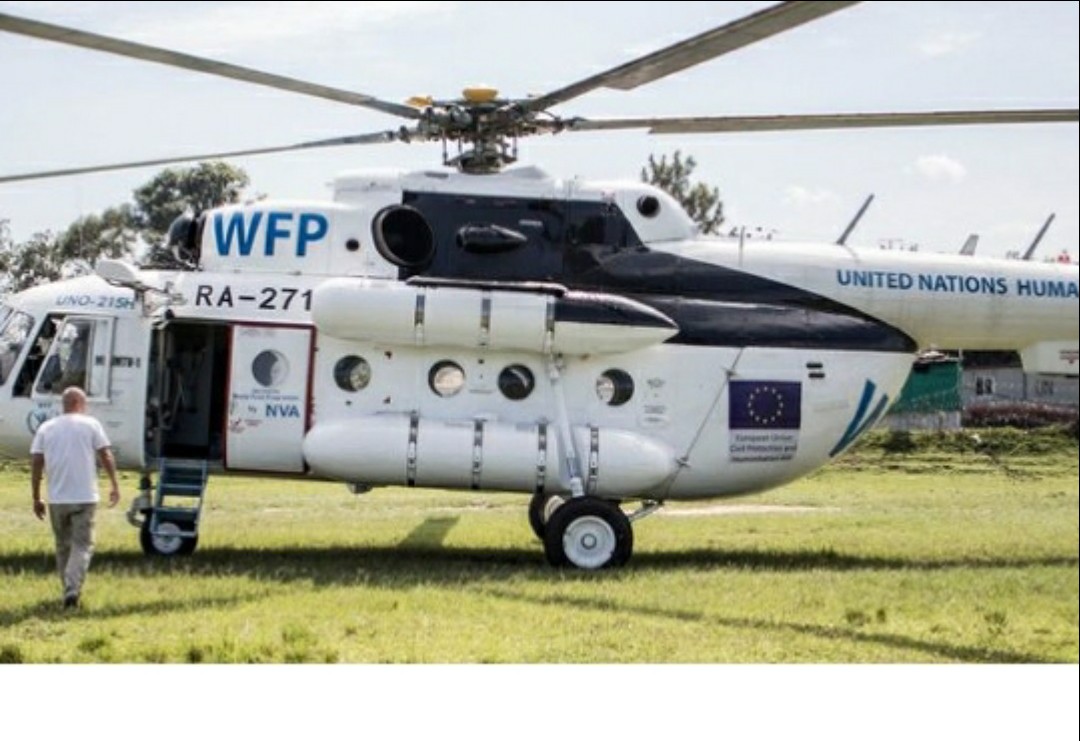The first United Nations “Solidarity Flight” is scheduled to leave Addis Ababa, Ethiopia, today – from there, the aircraft will transport the vital medical cargo to all countries in Africa, where supplies are desperately needed to contain the spread of COVID-19.
WHO cargo is being transported by the United Nations World Food Programme (WFP), and includes face shields, gloves, goggles, gowns, masks, medical aprons and thermometers, as well as ventilators.
The cargo also includes a large quantity of medical supplies donated by the Prime Minister Abiy Ahmed and Jack Ma Foundation Initiative to reverse COVID-19 in Africa. The African Union, through the Africa Centres for Disease Control and Prevention (Africa CDC) is providing technical support and coordination for the distribution of the supplies.
“Commercial flights are grounded and medical cargo is stuck. We can stop this virus in its tracks, but we’ve got to work together. WFP is committed to getting vital medical supplies to front lines and shielding medical workers as they save lives,” said David Beasley, WFP’s Executive Director. “Our air bridges need to be fully funded to do this, and we stand ready to transport frontline health and humanitarian workers as well as medical cargo,” he added.
“The Solidarity Flight is part of a larger effort to ship lifesaving medical supplies to 95 countries,” said Dr. Tedros Adhanom Ghebreyesus, Director-General of WHO. “I would like thank the African Union, the governments of UAE and Ethiopia, the Jack Ma Foundation and all our partners for their solidarity with African countries at this critical moment in history.”
The crucial WHO cargo includes one million face masks, as well as personal protective equipment, which will be enough to protect health workers while treating more than 30 000 patients across the continent and laboratory supplies to support surveillance and detection.
“The African Union values the efforts of our partners – the World Health Organization, the World Food Programme, the Jack Ma Foundation/Prime Minister Abiy Ahmed – in supporting the African continental strategy for COVID-19 response. The medical supplies are much needed at this critical time that medical commodities are in short supply worldwide,” said Moussa Faki Mahamat, Chairperson of the African Union Commission. “The African Union will continue to provide the coordination needed as well as resources to ensure that our Member States are able to meet the need for healthcare services during this pandemic,” he added.
“We have seen time and again our health workers fall victim to infectious diseases as they work in hospitals and sometimes pass away,” said Dr Matshidiso Moeti, WHO Regional Director for Africa. “This is unacceptable. This personal protective equipment will help keep them safe. WHO is committed to protecting those on the front-lines of health care.”
WHO’s logistics hub in Dubai, staffed by a team of seven, has been working around the clock to dispatch over 130 shipments of PPE and laboratory supplies to 95 countries across all six WHO regions.
“Thanks to the Government of the United Arab Emirates for its generous support of this operation, WHO’s regional logistics hub in Dubai has played a key role in making sure these supplies are prepared and shipped to where they are most needed. This is by far the largest single shipment of supplies since the start of the pandemic, and will ensure that people living in countries with some of the weakest heaths systems are able to get test and treated, while ensuring that health workers on the frontlines are properly protected,” said Dr Ahmed Al-Mandhari, WHO Regional Director for the Eastern Mediterranean.
The WFP and WHO extend thanks to the Government of Ethiopia, which helped WFP set up the Addis Ababa Humanitarian Air Hub this week, to help transport protective equipment, medical supplies and humanitarian workers across Africa for the COVID-19 response, as well as ensuring medical evacuations for humanitarian responders.
A team of 25 WFP aviation and logistics staff is based at Bole International Airport in Addis Ababa, managing the 24-hour operation. They manage warehouse space for dry bulk, temperature-controlled and cold storage cargo and its onward transport by air. WFP also provides dedicated cargo tracking, warehouse management and customer service to countries across Africa in collaboration with the Africa CDC.
“The medical supplies are timely as the continent still has a window of opportunity to fight the COVID-19 pandemic. Collective and fast actions as exemplified by the Solidarity Flight are therefore critical,” said John Nkengasong, Director of the Africa CDC.
As part of a global appeal to raise a US$2 billion for the COVID-19 response, launched by the United Nations Office for Coordination of Humanitarian Affairs (OCHA) on 25 March, WFP is calling for US$350 million to establish vital humanitarian hubs around the world to facilitate the storage and dispatch of essential medical cargo, set up air transport links for cargo and personnel, contract charter vessels for shipping services, and provide passenger air and Medevac services for humanitarian and health workers. This includes such Solidary Flights through Addis Ababa. Currently, WFP has received only 24% (US$84 million) of the US$350 million it requires to provide these vital common services to the global humanitarian community.
